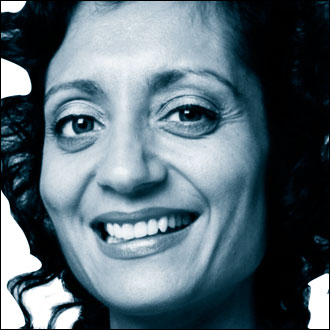‘Are private schools better than my school, Mum?’, was the question posed by my 7-year-old son after I explained that we could not afford private education.
It was a difficult question to answer but I attempted to describe school league tables, with private schools being at the top of these, but that we also had to take into account their small class sizes. I then proceeded to deliver a sociology lecture on social class and its effects on health, education and success in life. His response became somewhat smug after this and he told me he would be just fine then because he was middle classed!
His simple question about quality made me reflect on the way the same crude benchmarks are applied to GP practices. Our data on referrals, A&E attendances, unscheduled admissions and chronic disease are being compared as if we are all on the same level playing field.
My own practice, with its high levels of deprivation and non-English speaking patients, has very large ‘class sizes’. That is to say, the same pool of GPs need to deliver a much higher number of consultations per patient, and each one of these consultations takes a lot longer. And no matter how well we manage and educate our patients, they will still attend A&E and they will still have higher numbers of admissions. This can be partially explained by lack of education but mostly by the fact that on average they are likely to die around ten years younger than their middle classed counterparts.
It is not uncommon for our nurses to invest huge amounts of time, via a link worker, attempting to educate a Romanian, Somali or Pakistani patient about managing Diabetes or CKD or any of the other chronic diseases which require us to ensure adequate ticks in the boxes. This time is completely unaccounted for when it comes to payment for this activity and it would be far simpler (and possibly more effective) to just admit them to hospital for a few days, to achieve the desired outcome.
Yet despite the environment and the obvious obstacles, we are still propping up the NHS by containing many patients; spending our staff time (and money) to manage their increasingly complex care and seeing them as emergencies because they threaten to attend A&E or visiting them as they threaten to call an ambulance.
So, it is perhaps rather unsurprising and entirely predictable for us to find ourselves near the bottom of the ‘league tables’ as it is like comparing apples with pears. The fact that we are actually near the top in a lot of areas should trigger a fanfare and a special ‘Lifetime Hardship Achievement’ award rather than a stern ‘you must do better next time’.
So when I recently received my son’s Ofsted report, accompanied by a detailed explanation by the Head teacher about why it was not as good as expected, I replied stating the whole process made me want to weep and I was sick to death of these types of tick box exercises. As far as I was concerned, the teachers were doing an excellent job of providing holistic education to my children and, as a dolphin parent, I was more concerned about their emotional intelligence than their IQ.
Unfortunately, I think most local areas teams are full of Tiger Mums rather than Dolphin Dads.
Dr Shaba Nabi is a GP trainer in Bristol.

















